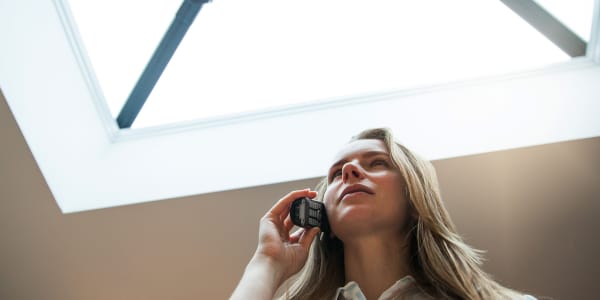The days of taking out a home equity line of credit to pay for college, a new car or for someone's silence — and take a tax break on the interest — are coming to a close.
Prior to 2018, homeowners were able to borrow against their dwelling and deduct the interest paid on loans of up to $100,000. It didn't matter whether you used the money to spruce up your home or whether you tapped the line of credit to help you get through a period of unemployment.
Starting this year, under the Tax Cuts and Jobs Act, homeowners can only deduct the interest on the debt if the money from a HELOC went toward buying, building or substantially improving the home that secured the loan.
Here's the loophole: There's no clear way for the Internal Revenue Service to ensure that this is how you're using the money.
In theory, you could use your line of credit or your home equity loan to pay your bills or go on vacation and attempt to deduct the interest on your taxes.
More from Advisor Insight:
Americans go on more drunk shopping sprees
Scammed taxpayers agree to pay IRS 'debt' on iTunes cards
Market shocks should be wake-up call for investors
"From my knowledge, banks don't verify that you spent it on what you say you spent it on," said Dave Stolz, an accountant and member of the American Institute of CPAs personal financial specialist credential committee.
"There is no box for you to check, which puts the onus on the taxpayer and makes it scarier for the taxpayer," he said.
Here's what you'll need to know about a HELOC under the new tax law.
More than a new kitchen
A recent survey from NerdWallet revealed that about 1 in 5 Americans opened a HELOC.
The personal finance site took an online poll of 2,000 adults in February.
Though nearly two-thirds of the individuals who took the loan used the money to pay for home improvements, a quarter used the proceeds to pay for surprise costs, including car repairs and medical expenses.
Left untapped, a HELOC can act as a low interest source of funds for emergencies. Consider that current rates on home equity loans are 5.57 percent, according to Bankrate.com. Borrowers who want to take out a $30,000 HELOC are paying an interest rate of 5.77 percent.
In comparison, credit card rates are in the neighborhood of 16.84 percent.
"Securing a home equity line of credit, but not using it initially, is one way to give yourself easy access to money in case of unemployment or big bills," said Holden Lewis, research analyst at NerdWallet.
Cover your assets
If there is no mechanism in place for the IRS to verify how you used your HELOC or home equity loan, then that means you'll need to document your use of the money in the event of an audit.
What you should do is track your deductible interest and help yourself by separating any loan proceeds used for large home projects.
"If you have a large project, get a separate bank account and pay your bills from the proceeds," Stolz said. "If you put it in your general account, you can trip yourself up."
It's sound financial management advice to obey the law, rather than to blatantly act in opposition to regulations.Mark Hamricksenior economic analyst at Bankrate.com
Here's another concern: Let's say that you're still paying off a HELOC or home equity loan from three years ago and you weren't keeping track of your home-related expenses.
You'll need to find some way to track down the details of those costs in order to claim the deduction.
Even if the IRS doesn't have a way to determine how you're using your loan proceeds, it's best to maintain records of your spending to back up your deductions.
"It's a little like not speeding whether or not you know there's a speed camera," said Mark Hamrick, a senior economic analyst at Bankrate.com. "It's sound financial management advice to obey the law, rather than to blatantly act in opposition to regulations."





